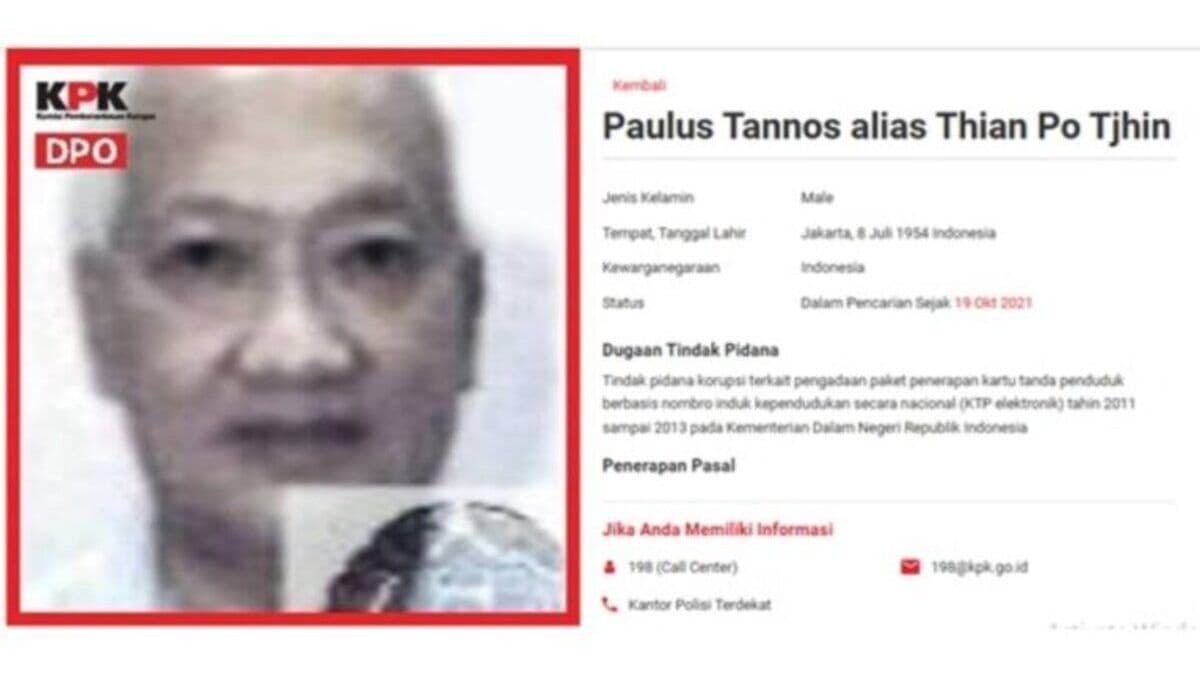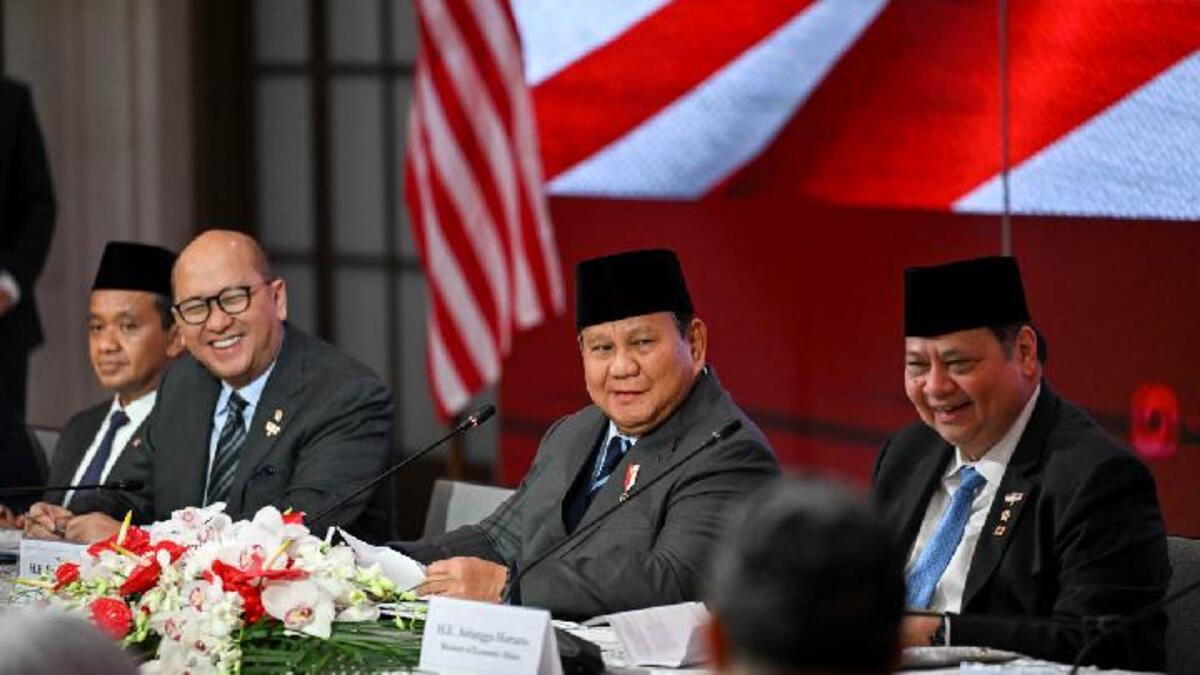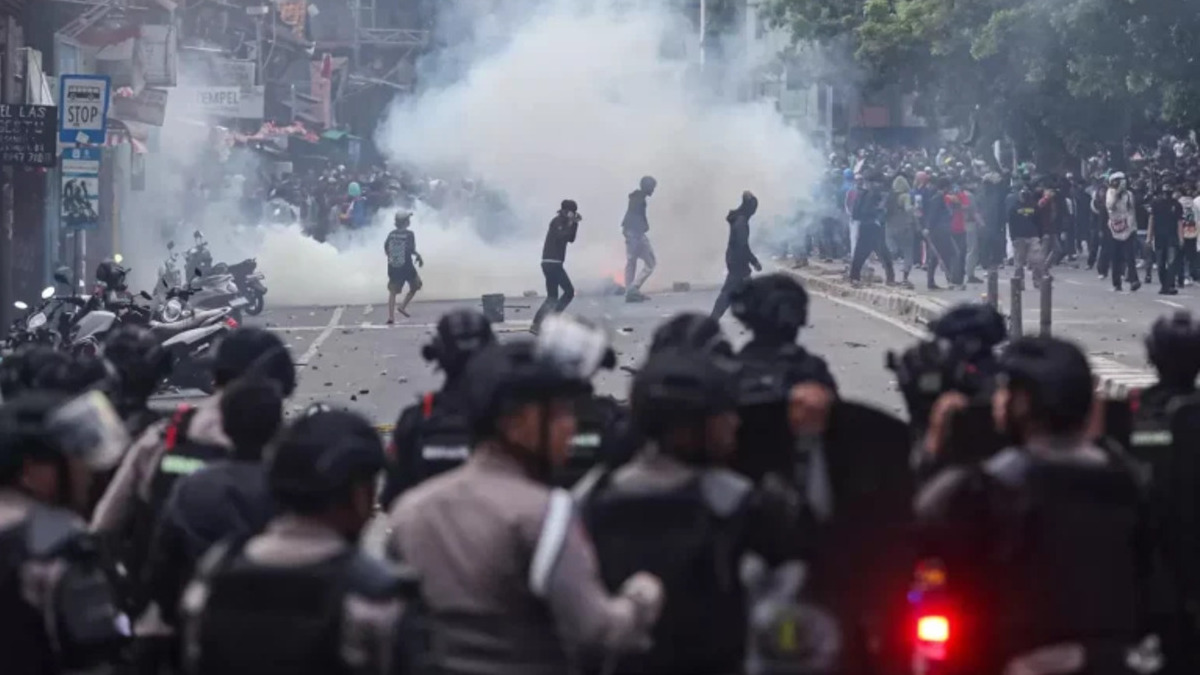District court rejects prosecution bid to strike out affidavits in Paulus Tannos bail case
A Singapore district court rejected a prosecution bid to strike out affidavits linked to Indonesian fugitive Paulus Tannos, who faces extradition proceedings over the multi-billion-rupiah e-KTP corruption scandal.

- A Singapore district court rejected a prosecution attempt to strike out affidavits filed in the bail hearing of Indonesian fugitive Paulus Tannos.
- Tannos is wanted in Indonesia over the e-KTP corruption scandal, which caused losses of 2.3 trillion rupiah (S$181.7 million).
- A committal hearing on extradition is scheduled for June 2025.
A Singapore district court has dismissed an application by prosecutors to strike out portions of affidavits filed in the bail hearing of Indonesian businessman and fugitive Paulus Tannos.
The decision, delivered on 28 May 2025 by District Judge Brenda Tan, allows the affidavits to remain on record despite objections from the prosecution that they went beyond the scope granted.
Allegations involving CPIB not disclosed
The affidavits were submitted in mid-May, one by Tannos himself and another by his lawyer, Paulus Sinatra Wijaya. According to prosecutors, they included allegations concerning the Corrupt Practices Investigation Bureau (CPIB). The contents of those allegations were not disclosed in open court.
Deputy Senior State Counsel Sivakumar Ramasamy argued that the affidavits exceeded the limits of what had been permitted when the court authorised their submission. He said they included references to Tannos’ past dealings with both Indonesian authorities and the CPIB, issues already ventilated at an earlier stage of the bail proceedings.
Sivakumar further contended that permitting such material could complicate and delay proceedings, noting that legal arguments on these matters had already been addressed.
Defence objects to strike-out application
Tannos’ defence lawyer, Bachoo Mohan Singh, rejected the prosecution’s move. He told the court that preventing a defendant from including information relevant to his liberty was inconsistent with principles of justice.
“I’ve never come across a scenario where, when a man is fighting for his liberty, he is constrained from saying what he wishes to say,” Singh said.
Addressing Judge Tan directly, he added: “I would not be doing my job if I were to ignore important issues which I consider vital in my client’s effort to seek liberty.”
Singh also stated that the defence had no objection if prosecutors wished to file a response to the affidavits.
Judge Tan allows affidavits to stand
After hearing both sides, Judge Tan ruled that the affidavits should remain on record. She said this would be “in the interest of justice and completeness”, while clarifying that the prosecution retained a full right of reply.
“To be fair, you have put in contents which you were not given permission to, so the state has a right of reply,” she told Singh.
The judge also raised a separate procedural matter. She disclosed that she personally knew the senior consultant from Changi General Hospital (CGH) who had signed off on a medical report submitted in support of Tannos. She asked whether either party had concerns about her presiding over the bail hearing, but both the prosecution and defence said they had no objection.
Background on arrest and extradition
Tannos, also known as Tjhin Thian Po, was arrested in Singapore on 17 January 2025 by the CPIB under a provisional arrest request from Indonesia.
He has been a wanted man in Indonesia since 19 October 2021 for his alleged involvement in the multi-billion-rupiah corruption scandal linked to the government’s electronic identification card project, known as e-KTP.
The project, launched in 2011, aimed to create a secure nationwide identity card system. However, it became one of Indonesia’s largest corruption scandals, with losses estimated at 2.3 trillion rupiah (about S$181.7 million).
Tannos was the president and director of Sandipala Arthaputra, a technology company that won a contract to supply components for the project. He has denied wrongdoing.
Timeline of extradition proceedings
Indonesia submitted its provisional arrest request to Singapore on 19 December 2024. After a joint assessment by the CPIB and the Attorney-General’s Chambers (AGC), the authorities determined that the request satisfied conditions under the bilateral extradition treaty.
A warrant of arrest was issued and executed on 17 January 2025. Indonesia followed up with a formal extradition request on 24 February 2025.
On 10 March, Minister for Home Affairs and Law K. Shanmugam said Singapore was working to expedite the process and emphasised that the country was fully committed to honouring its extradition obligations to Indonesia.
The Singapore–Indonesia extradition treaty came into effect on 21 March 2024, after more than a decade of negotiations. It covers 31 categories of offences, including corruption, bribery, and money laundering, and applies retroactively for up to 18 years.
A committal hearing to decide whether Tannos should be extradited is scheduled for June 2025.
Bail application linked to health concerns
The current bail proceedings were initiated after Tannos was hospitalised at CGH between 2 and 9 May 2025. His defence requested permission to file an affidavit related to his hospitalisation, citing his medical condition. The court granted that request on 15 May.
However, the affidavits eventually submitted contained not only health-related details but also wider issues, including Tannos’ prior interactions with investigative authorities. This prompted the prosecution’s attempt to strike out the documents.
The court’s rejection of that attempt ensures the affidavits remain part of the bail record, though prosecutors are now expected to file formal replies.
Tannos declines voluntary extradition
At the close of the 28 May hearing, Judge Tan noted that Tannos had once again declined to give consent to extradition.
Under Singapore’s Extradition Act, fugitives may voluntarily waive their rights and agree to be transferred to the requesting state. Tannos’ refusal means the full committal process must proceed before a final determination is made.
If the district court orders committal, the case will be referred to the Minister for Law, who will decide whether to issue a surrender order to Indonesia.
Broader implications of the case
Legal observers say the case is the first high-profile test of the Singapore–Indonesia extradition treaty since its entry into force in 2024.
The treaty was a significant development in regional legal cooperation, especially given longstanding concerns over fugitives using Singapore as a safe haven.
By moving forward with the extradition request, Singapore has signalled its commitment to enforcing the treaty robustly, though the final outcome will depend on the courts.
For Indonesia, the case is symbolically important. The e-KTP scandal implicated senior politicians and officials, with several already convicted in Jakarta. Securing Tannos’ return would add momentum to Indonesia’s anti-corruption drive.
For Singapore, the proceedings highlight the balance courts must maintain between procedural fairness for individuals facing extradition and the state’s international treaty obligations.







